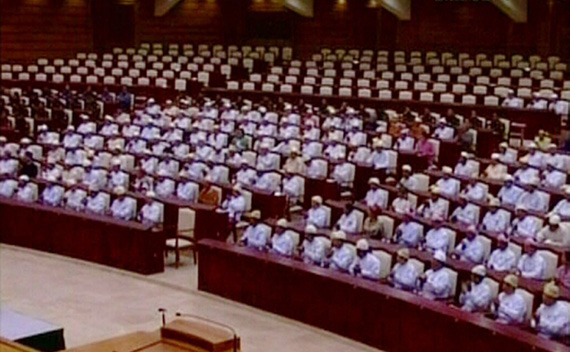Burma Opens Its New “Parliament”
More on:

Earlier this week, Burma officially opened its new “parliament,” the result of the highly criticized national elections held last fall. The parliament nominated two senior military men as speakers. General Shwe Mann became speaker of the lower house, in the tightly guarded parliament in the purpose-built military capital of Naypyidaw. The regime also has written an absurd number of regulations that limit what the parliament can do – intricate rules that allow powerful military men to cut off debate or motions, or simply squelch dialogue altogether. The army’s favored party, too, already controls about eighty percent of all seats in the parliament.
The choices of speakers aren’t exactly a good sign. Shwe Mann, the third ranking general in the previous military regime, is known as a close ally of ruling Senior General Than Shwe, and Shwe Mann possibly may be the next head of the Burmese military.
In the run up to the election, some observers, including myself, believed that even some degree of civilianization of Burmese politics would be helpful for the country’s future, though the military obviously would remain in control overall. Civilianization might allow for limited economic reforms, of the type pushed by China on its ally. But increasingly even this limited, very mild reform, is looking unlikely. The opposition politicians who, unlike Aung San Suu Kyi’s National League for Democracy, chose to participate in last fall’s election, are looking more and more isolated, and some of them are regretting their decision. While countries like Egypt seem on the brink of change, Burma remains a stubborn exception.
More on:
 Online Store
Online Store